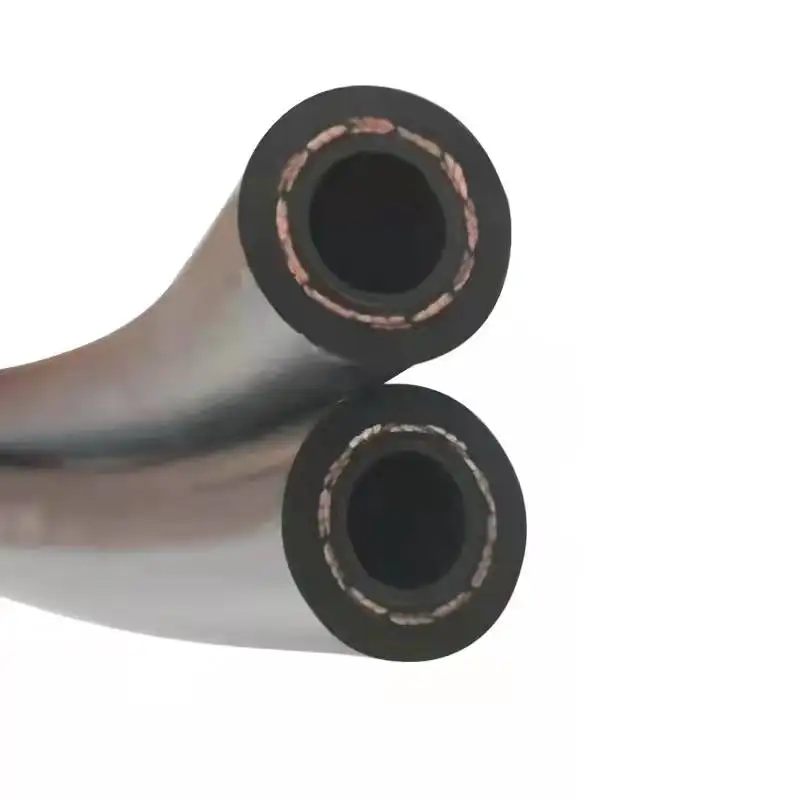gas fuel line hose
Oct . 12, 2024 06:18 Back to list
gas fuel line hose
Understanding Gas Fuel Line Hose A Comprehensive Overview
Gas fuel line hoses are critical components in various vehicles and machinery, serving as conduits for transporting fuel safely from the tank to the engine. These hoses are specifically designed to withstand the rigorous demands of fuel transportation, which includes exposure to high temperatures, pressure changes, and various aggressive fuels.
One of the primary materials used in manufacturing gas fuel line hoses is rubber, specifically reinforced synthetic rubber known for its flexibility and durability. This material is chosen for its excellent resistance to fuel, as well as its ability to maintain structural integrity under extreme conditions. In addition to rubber, some hoses incorporate materials like thermoplastic elastomers (TPE) or fluoropolymers, which can provide enhanced chemical resistance and longevity.
Safety is paramount when dealing with gas fuel line hoses. Leaks in the fuel line can lead to catastrophic failures, including fires and explosions. Therefore, stringent standards and regulations govern the manufacturing and installation of these hoses. They must be tested for their ability to resist kinking, abrasion, and exposure to ozone, which can deteriorate rubbers. Ensuring that hoses meet these standards helps to prevent hazardous situations on the road.
gas fuel line hose

The design of the gas fuel line hose is also crucial. The hose must be compatible with the specific type of fuel being used—whether gasoline, diesel, or alternative fuel options. Different fuels have varying chemical compositions that can affect how a hose material reacts over time. Therefore, selecting the appropriate hose for the intended fuel is essential to ensure performance and safety.
Moreover, proper installation is just as important as the hose's material and design. Hoses must be laid out correctly and secured to prevent movement that can lead to wear, chafing, or disconnecting. Regular maintenance checks should include inspecting hoses for cracks, leaks, or any signs of wear and tear. Replacing hoses proactively can help avoid unexpected breakdowns and ensure the longevity of the engine and fuel system.
In conclusion, the gas fuel line hose is a small but vital element in any fuel-powered system. Understanding its importance, materials, and maintenance needs is essential for vehicle owners and operators. With the right care, these hoses can provide reliable service and keep vehicles running smoothly, thus contributing to the overall safety and efficiency of transportation. Investing in high-quality fuel line hoses and adhering to proper installation and maintenance practices will not only prolong the life of the vehicle but also ensure that safety remains a top priority on the road.
